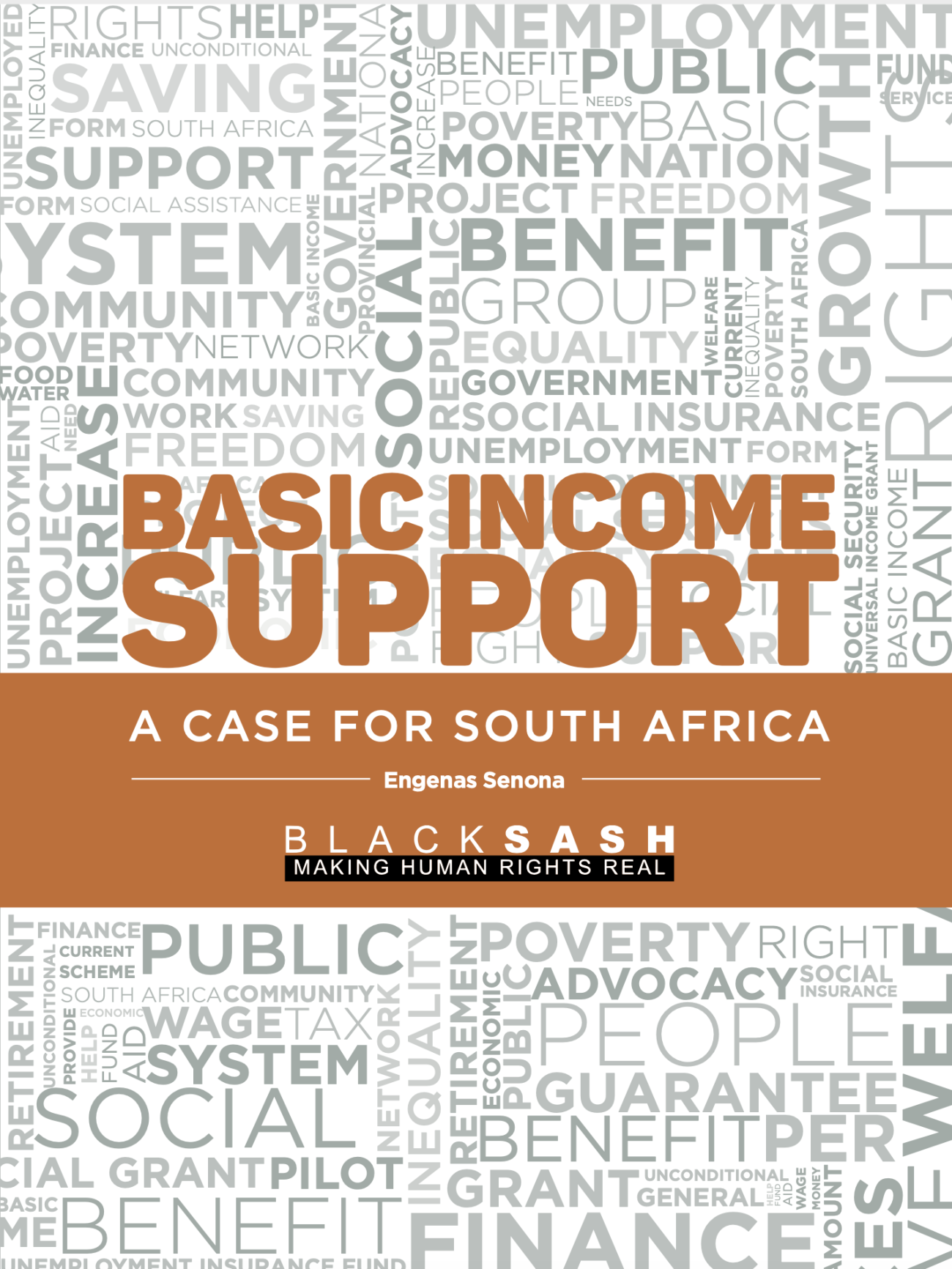A Human Rights-Based Approach to Basic Income Support in South Africa

Ensuring a comprehensive system that leaves no one behind and doesn't exclude anyone from benefitting.
The United Nations and its partners held a roundtable discussion in July to consider a human rights-based approach to basic income support in South Africa. The event was organized by the Office of the High Commissioner for Human Rights (OHCHR) Regional Office for Southern Africa together with key participants from the government, the civil society and academia.
The roundtable was intended to support follow-up to recommendations made by the UN Committee on Economic, Social and Cultural Rights (CESCR) to South Africa, which included the design of a composite index on the cost of living; ensuring that those between the ages of 18 and 59 with little or no income have access to social assistance; and the need to consider introducing a universal basic income grant.
The discussions also formed part of a joint programme between OHCHR, the International Labour Organization (ILO), the UN Development Programme (UNDP), UNICEF and UN Women. The joint programme seeks to ensure no one is excluded from benefiting from current social protection programmes and an agreement for a comprehensive system that leaves no one behind.
South Africa has high levels of poverty and unemployment and has been ranked by the World Bank as the most unequal country in the world. These concerns have been exacerbated by COVID-19 and the related lockdowns during 2020 and 2021 when millions were left with no income or means of support.
This prompted the government to increase existing social grants such as the Temporary Employee/Employer Relief Scheme and the COVID-19 Social Relief of Distress (SRD) grant. The latter pays 350 rand (about US$20) per month to unemployed persons who do not receive any other social grant or unemployment insurance fund payment. The government recently extended the COVID-19 grant to March 2023.
With an employment rate of 33.9%, many experts believe South Africa requires a permanent and sustainable mechanism to support the unemployed who are between the ages of 18 and 59 with no access to social protection.
In her welcoming remarks at the roundtable, Abigail Noko, the OHCHR’s Regional Representative for Southern Africa, noted that social protection was a pressing issue in South Africa, considering the decisions the government will have to make on the COVID-19 SRD grant. She said the devastating impact of COVID-19 in South Africa and globally, deepening inequality, food insecurity, unemployment and poverty have shown that even basic income support can make a difference in people’s lives and livelihoods.
Professor Olivier de Schutter, UN Special Rapporteur on extreme poverty and human rights, urged participants to think of social protection as a human right to social security. This means the relationship between the government and the beneficiaries of social assistance was not one of charity, but a duty-bearer’s obligation and a claim that rights-holders can make.
The special rapporteur stressed that budgets should not be prioritized at the expense of rights protection. Rather, social protection should be seen as an investment in human capital that can deliver very important medium and long-term benefits to all of society. Ms. De Schutter underscored that, “it is the duty of the state to mobilize enough resources in order to make the right to social security a reality for all individuals, and that is the best investment a state can make for inclusive and sustainable growth.”
Professor Sandra Liebenberg, the H.F. Oppenheimer Chair in Human Rights Law and Distinguished Professor in the Faculty of Law at the University of Stellenbosch, noted that the South African Constitutional Court has linked the right to social security to the underlying values of human dignity, equality and freedom, Ubuntu, racial and gender equality, and social justice.
She added that the Constitution imposes a positive duty on the State to take reasonable legislative and other measures within its available resources to achieve the progressive realization of this right. This implies that government does not have a policy choice not to adopt proactive measures of social security but must do so as a matter of legal obligation. As held by the Court, “The purpose of social security is to ensure that everyone, including the most vulnerable members of our society, enjoy access to basic necessities and can live a life of dignity.”
Redha Ameur, ILO’s Regional Specialist, explained that social protection is anchored in human rights standards at all levels at the ILO. The oorganization’s mandate has always included social protection, going as far back as the ILO Convention of 1919. The Declaration of Philadelphia affirms that, “poverty anywhere constitutes a danger to prosperity everywhere” as part of the fundamental principles on which the organisation is based.
Mr. Ameur explained that ILO Recommendation No. 202 (2012) provides important guidance and principles regarding coverage, adequacy, and financing for basic income. Basic income support is not at odds with social protection floors as it echoes the requirements in Recommendation No. 202, and also reflected in Sustainable Development Goals Targets 1.3 and 3.8. The recommendation urges States to guarantee that, at a minimum that, over the human life cycle, “all in need have access to essential health care and to basic income security.”
Participants at the roundtable discussed the need for a basic income grant in South Africa and its relationship with human rights in adopting a universal or targeted approach. They also discussed options to develop a composite index on the cost of living in South Africa as part of realizing the right to adequate living standards. The roundtable highlighted the value and contribution of a human rights approach as enshrined in the country’s constitution and made recommendations for action. OHCHR will continue to support the government on this issue as it prepares to submit its report to the CESCR in 2023.







